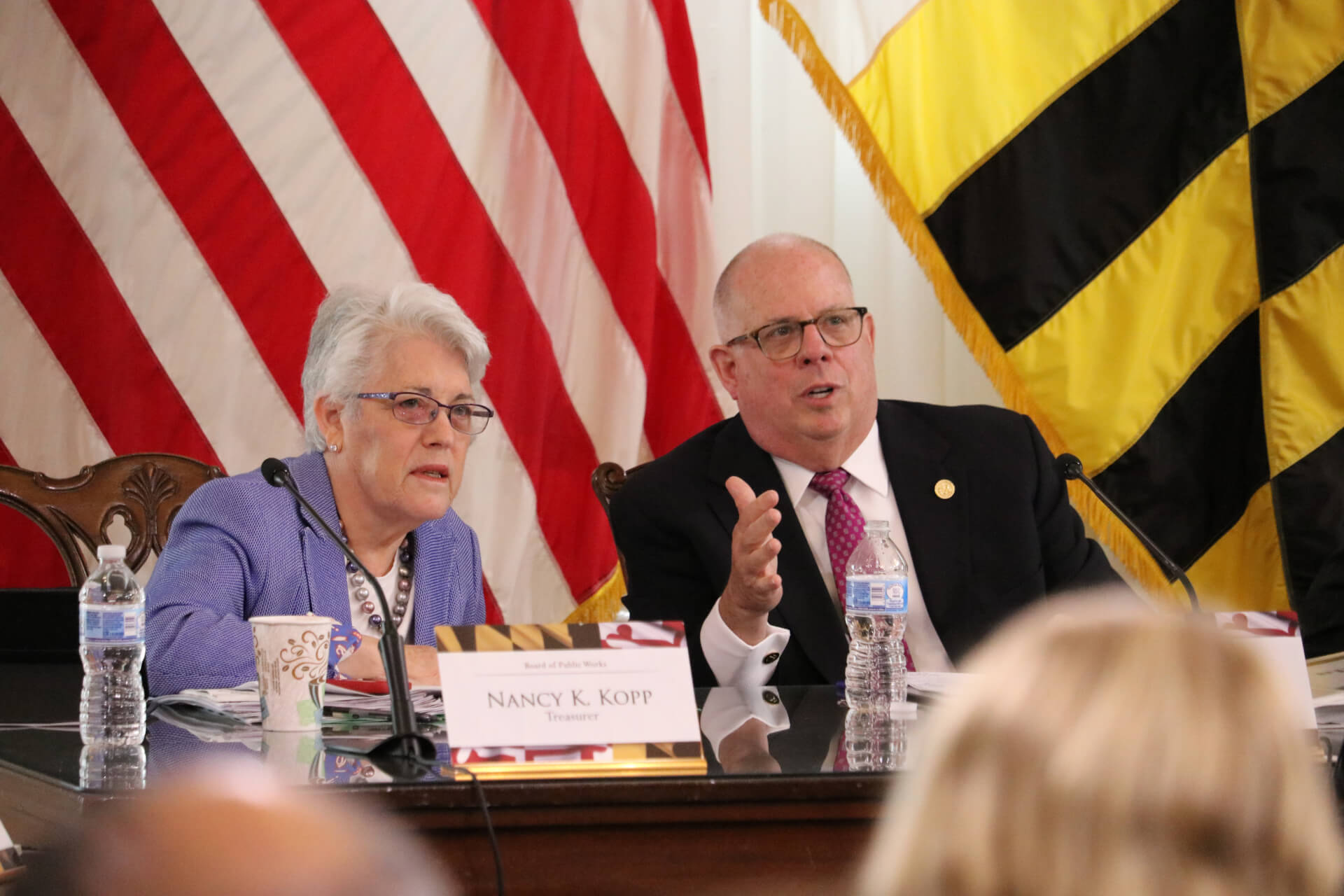
Efforts to generate more competitiveness in state contracting are paying off, yielding better deals for state agencies and saving taxpayer dollars in the process, Gov. Lawrence J. Hogan Jr. (R) said on Wednesday.
But within minutes of making his proclamation, at the twice-monthly meeting of the contract-approving Board of Public Works, Hogan found himself defending a staff request to extend a state employee health plan with the current vendor, industry giant KaiserPermanente.
Comptroller Peter V.R. Franchot (D) said the request, to allow for two two-year renewal options of Kaiser’s current contract, smacked of the “incumbent vendor protection program,” in which agencies seek to retain a current contractor, rather than “test the genius of the marketplace” by seeking bids from outside firms.
Hogan opened Wednesday’s voting session with praise for state procurement officials “for achieving an 86 percent reduction in the number of single-bid contracts brought before this body over the last five fiscal years. That deserves a big round of applause.”
“In the year before I became governor, the previous board approved 93 single-bid contracts, most of them over the objections of the comptroller,” Hogan added. “In fiscal year 2019, the number was brought down to 13.”
Twenty minutes later, Franchot — in his role as penny-pinching fiscal watchdog — pressed Jamie Tomaszewski, a top procurement official with the Department of Management and Budget, over the Kaiser renewals, saying he wanted to explore “the genius of the marketplace. Maybe the marketplace could lower the rates even further. We just don’t know.”
“We end up sticking with the incumbent way too often in these situations,” Franchot added, “particularly with big, complicated health care contracts.”
The two-year renewal options, if exercised, would cost the state $154.9 million each — a total of $309.8 million.
Franchot and Kopp tried to get the department to accept a single two-year renewal option instead, but Tomaszewski resisted, noting that there aren’t many firms eager to bid on large health insurance contracts right now.
“It’s not that big of a market anymore,” she said.
Also lost, she said, would be the investment in Kaiser’s healthy employee programs.
“If we shorten up the contract term, we’re not going to get the same benefits from the wellness program, because then a new vendor would have to come and stand up that program again.”
Added Hogan: “If you start a new procurement now, to take place in two years, it’s almost guaranteed to have higher rates than the ones we’re locking in now.”
With that, the agency’s request to accept the renewal options was approved, 3-0.
Hogan said that the push toward greater competitiveness in contracting was an objective he shared with the other members of the board, Franchot and Treasurer Nancy K. Kopp (D). “All three of us agreed that we were going to work hard to try to find ways to make the bidding process more competitive.”




 Creative Commons Attribution
Creative Commons Attribution